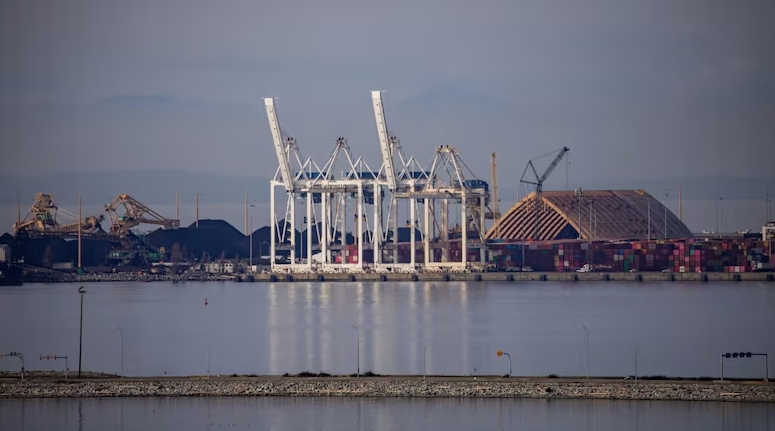B.C. Premier Urges Tariff on U.S. Thermal Coal Exports Amid Trade War with Trump
Sarah Desjardins
3/12/20252 min read


As Donald Trump ramps up tariffs on Canadian goods, B.C. Premier David Eby is urging Ottawa to hit back by taxing U.S. thermal coal exports that pass through B.C. ports on their way to Asia.
Speaking Monday, Eby said he has presented the proposal directly to outgoing Prime Minister Justin Trudeau, urging the federal government to either impose levies or restrict U.S. coal exports entirely.
“This is a major opportunity to use economic leverage,” said Eby. “B.C. ports are essential to U.S. coal exporters. If Trump is going to punish Canadian industries, we need to push back.”
B.C. Ports: A Lifeline for U.S. Coal
The U.S. exports nearly three-quarters of its thermal coal through B.C., primarily via Westshore Terminals in Delta, because it has no major West Coast ports capable of handling large coal shipments.
In 2024 alone, the Port of Vancouver handled 17.4 million metric tonnes of thermal coal—75% of it from the U.S.. The coal is transported by rail from Montana and Wyoming, which depend on B.C. ports to reach overseas buyers in South Korea and Japan.
“There’s no other choice for U.S. exporters on the West Coast right now,” said Tony Knutson, head of global thermal coal markets at Wood Mackenzie. “If Canada imposes levies, it could seriously impact American producers.”
Could This Trigger a Trade War Spiral?
While the B.C. government and environmental groups support the move, some trade experts warn that such retaliation could escalate tensions and provoke harsher economic retaliation from Trump.
Last week, Trump doubled tariffs on Canadian steel and aluminum—to 50%—in response to Ontario’s surcharge on U.S.-bound electricity. He vowed to “ruin Canada economically” if the country continued its countermeasures.
“He’s very unpredictable, so anything could make him angry,” said UBC energy policy expert Kathryn Harrison. “That’s the nature of a trade war. It hurts both countries, but the question is—who will back down first?”
Federal Government Weighs Response
Imposing levies on U.S. coal would require federal approval since trade tariffs fall under Ottawa’s jurisdiction. The Prime Minister’s Office declined to comment, saying incoming Prime Minister-designate Mark Carney has not yet been sworn in.
Global Affairs Canada, however, suggested that retaliatory measures are still on the table, stating:
“All options remain on the table as the government considers additional measures, including non-tariff options, should the U.S. continue to apply unjustified tariffs on Canada.”
Support from Environmentalists and Opposition Leaders
Environmental groups back the levy, arguing it aligns with Canada’s pledge to phase out thermal coal exports by 2030.
“We’ve been doing the U.S. a favour by exporting their coal. That needs to end,” said Fraser Thomson, a lawyer with Ecojustice.
The idea has also gained bipartisan support in B.C., with opposition leader John Rustad of the B.C. Conservatives endorsing the move.
“If Trump is going to hit Canadian industries, we should hit back where it hurts,” Rustad said.
Will It Work?
Trump has long courted the coal industry, making reviving U.S. coal production a key campaign promise. While domestic demand for coal has plummeted, exports to Asia remain a billion-dollar industry, meaning a Canadian levy could put financial pressure on red-state senators and U.S. coal executives.
“Thermal coal is critical to Montana and Wyoming,” said Knutson. “A Canadian tax could get Trump’s attention, but it’s unclear if it will change his approach to tariffs.”
With the U.S.-Canada trade war intensifying, the coming weeks will reveal whether Canada’s retaliation strategy will force Trump to the negotiating table—or further escalate economic tensions.
News
Stay updated with the latest BC news stories, subscribe to our newsletter today.
SUBSCRIBE
© 2025 Innovatory Labs Inc.. All rights reserved.
LINKS
